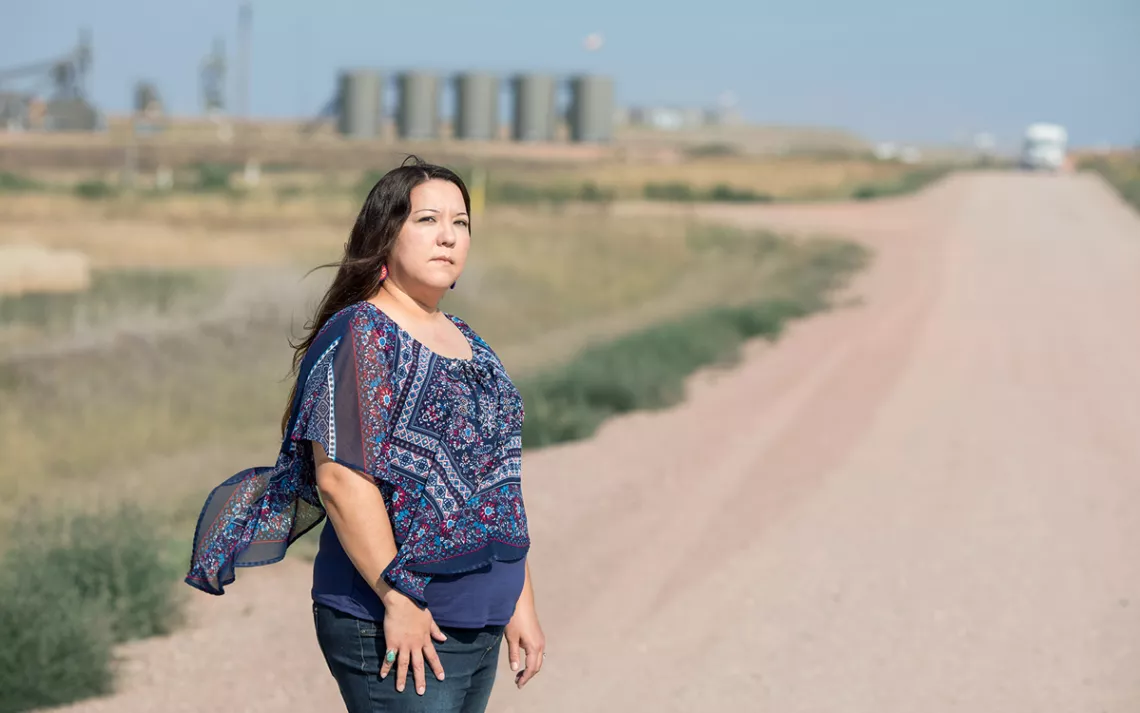Indigenous Activist and Cancer Survivor Works for a Just Transition
Kandi Mossett helps tribes transition to a sustainable future

Kandi Mossett stands near the center of North Dakota’s oil fields. | Photo by Mandi Carroll
In 1999, Kandi Mossett found a purple-red, pea-size lump on her stomach and immediately suspected cancer. She was 20 years old. For Native Americans on the Fort Berthold reservation in North Dakota, cancer is a fact of life.
"It was just a normal thing for me growing up, hearing about so-and-so having cancer," she says. It took three surgeries, but she was later declared cancer-free.
Oil and mining companies, utilities, and the military have contaminated the land and water surrounding the reservation for decades. On reservation territory, these polluters aren't afraid of government reprisal because there's an absence of regulation.
For Mossett, the effects of the pollution weren't just personal—an entire population was being impacted. "I was proof of it, and so were the people in the reservation communities," she says.
While an undergraduate at the University of North Dakota, Mossett participated in efforts to get the school to drop its Fighting Sioux nickname and logo. The day she graduated from UND with her master's, she applied to join the Indigenous Environmental Network (IEN), a grassroots group that focuses on environmental and economic justice in line with Native culture and tradition. She attended the 2009 Copenhagen climate change summit, where she learned about the United Nations Declaration on the Rights of Indigenous Peoples.
Her training and skills in community organizing became essential when Energy Transfer Partners routed the Dakota Access oil pipeline through land that her tribal council had ceded to the company after being threatened with eminent domain. In August 2017, she showed up to the Standing Rock camp with her three-year-old daughter. Mossett spent the next seven months sharing news of the camp through social media.
Since then, Mossett has continued to work with Just Transition, an IEN project that helps tribal communities install small-scale distributed renewable energy systems, increase energy efficiency in homes, and restore ecosystems.
"We want to have jobs that don't kill our people and make them sick," she says. "It's not about fighting what we don't want; it's about what we do want."
This article appeared in the November/December 2018 edition with the headline "Standing Strong."
Stacked Odds According to the National Cancer Institute, of the U.S. subpopulations, Native Americans and Alaska Natives have the lowest rates of survival for most types of cancer.
 The Magazine of The Sierra Club
The Magazine of The Sierra Club



